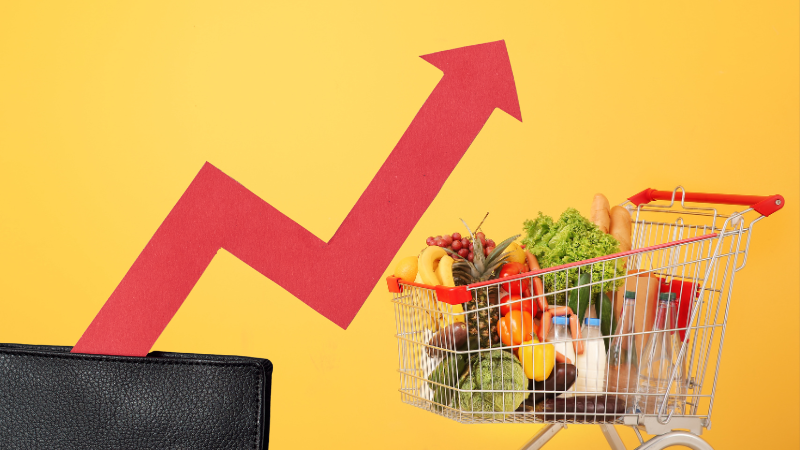
CHICAGO, September 15, 2025 — Grocery prices rose sharply last month, increasing at double the rate of food-away-from-home prices, according to new data from the U.S. Bureau of Labor Statistics.
Many economists attributed the acceleration of supermarket charges and the more moderate upswing in menu prices to President Trump’s tariffs, whose full effect on retail prices isn’t expected to hit until the holiday shopping season.
Federal figures released Thursday show grocery prices rose in August by 0.6% after declining 0.1% in July. The increase for groceries is the highest monthly jump recorded so far this calendar year.
Menu prices ticked upward by 0.3%, the same increase logged in July.
Even with the faster rise in grocery charges last month, menu prices have increased by a significantly quicker gait in 2025. Consumers were charged 3.9% more in August for a meal prepared outside the home than they were a year ago, according to BLS.
Home-cooked meals cost consumers about 2.7% more.
Many restaurant chains have cited that disparity in food inflation as one of the major reasons they’ve been losing traffic this year, particularly among their lower-income customers.
Overall, the Consumer Price Index (CPI) rose 0.4% on a seasonally adjusted basis in August, or double the 0.2% clocked in July.
President Trump and his administration have been adamant in asserting the duties levied by the White House on virtually all imported goods would not be passed along to U.S. consumers. A first wave of surcharges was imposed April 5, with the import fees for most countries increased on Aug. 7.
Yet businesses are refuting the assertions with their actions. The Sheetz convenience-store chain acknowledged this week that it will raise prices to offset a 26% jump in what it’s being charged for foods supplied by The Hershey Co.
Hershey told investors earlier this year that the tariffs on cocoa and other ingredients that go into its foods will increase its costs by $170 million to $180 million in the current fiscal year.
The Texas Roadhouse casual-dining chain alerted its shareholders that intends to raise menu prices by 1.7% in the fourth quarter because of climbing food costs.
The First Watch breakfast-and-lunch chain opted not to pass along an increase in commodity costs to its guests, citing the price sensitivity it’s seen in the field. But holding the line cut its store-level profit margin to 18.6%, from a prior average of 21.9%.
The Trump Administration is awaiting a decision from the U.S. Supreme Court on the legality of the tariffs. A lower court ruled that the president does not have the authority under a war-powers act from the 1970s to impose the duties, which are normally set and imposed by Congress. The nation’s highest court agreed to hear an appeal of that decision on an expedited basis.
The lower federal court ruled that the tariffs can remain in effect until Oct. 14 while the nation’s highest court deliberates.
Scott Bessent, Secretary of the U.S. Department of the Treasury, has warned that the government would be forced to refund about half the funds it has collected from the tariffs if the Supreme Court rules that Trump lacked the authority to set most of the import duties.
As Managing Editor for IFMA The Food Away from Home Association, Romeo is responsible for generating the group's news and feature content. He brings more than 40 years of experience in covering restaurants to the position.